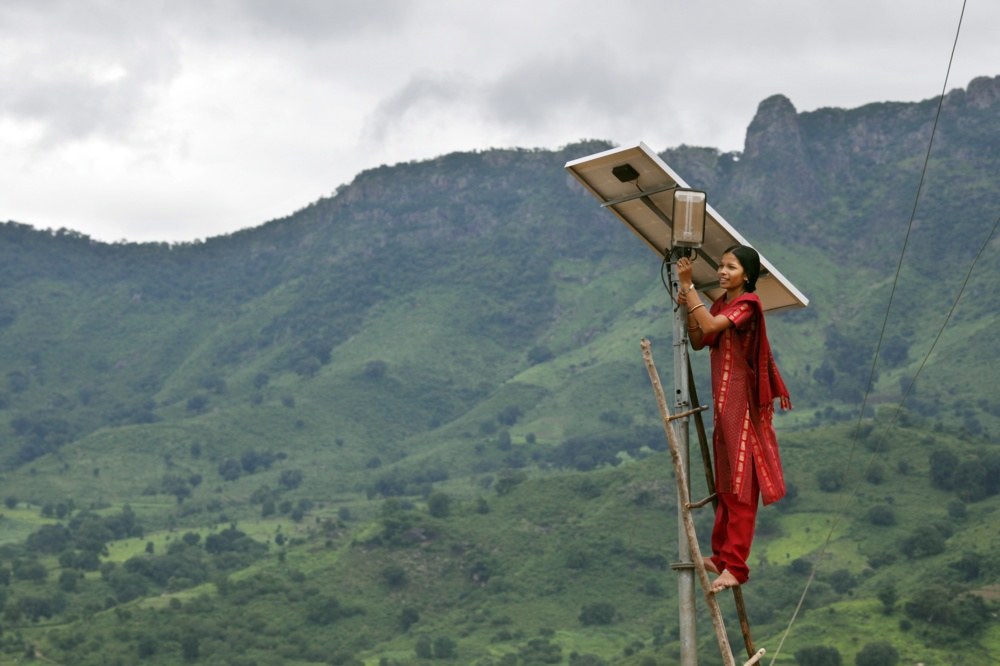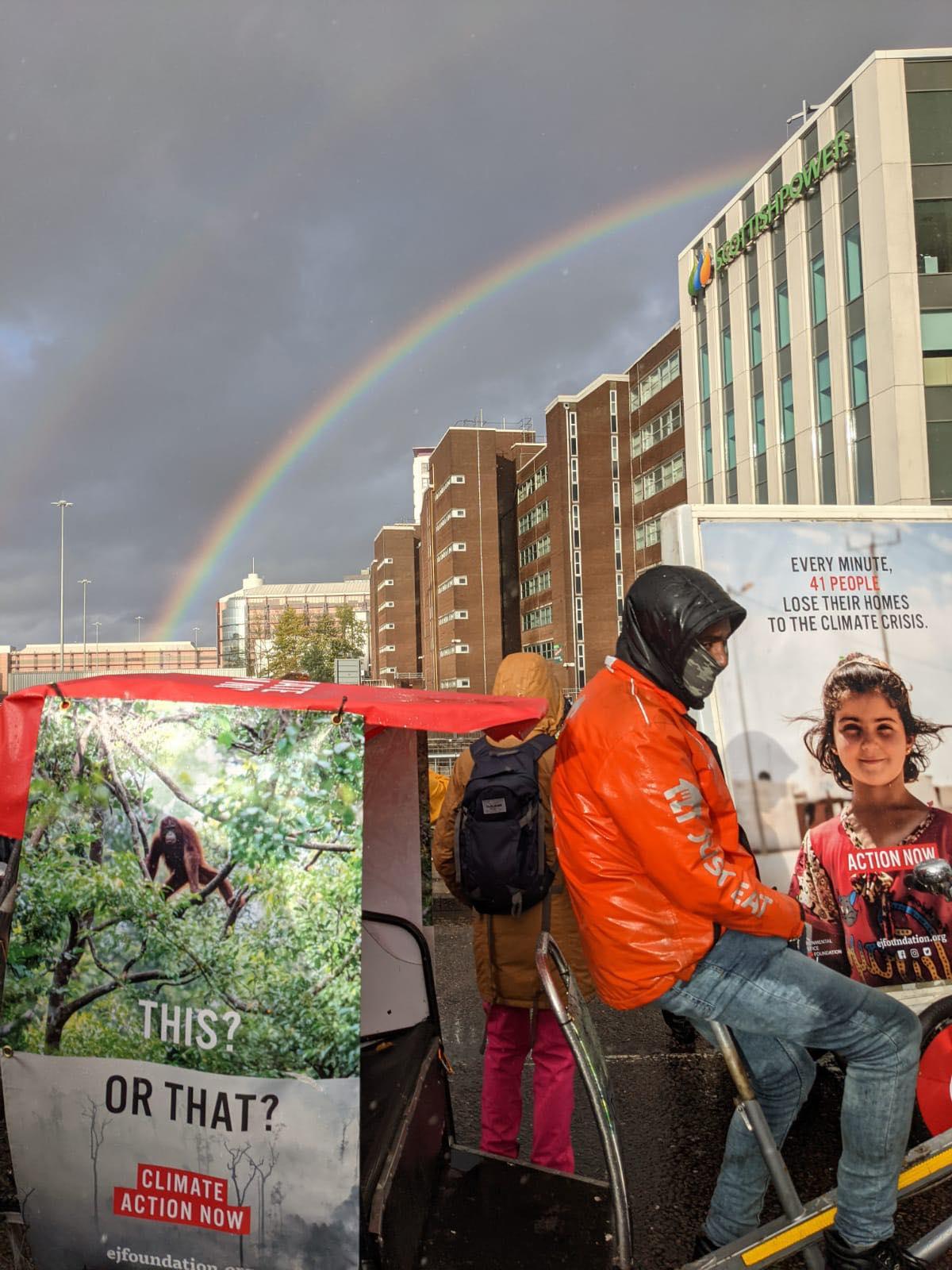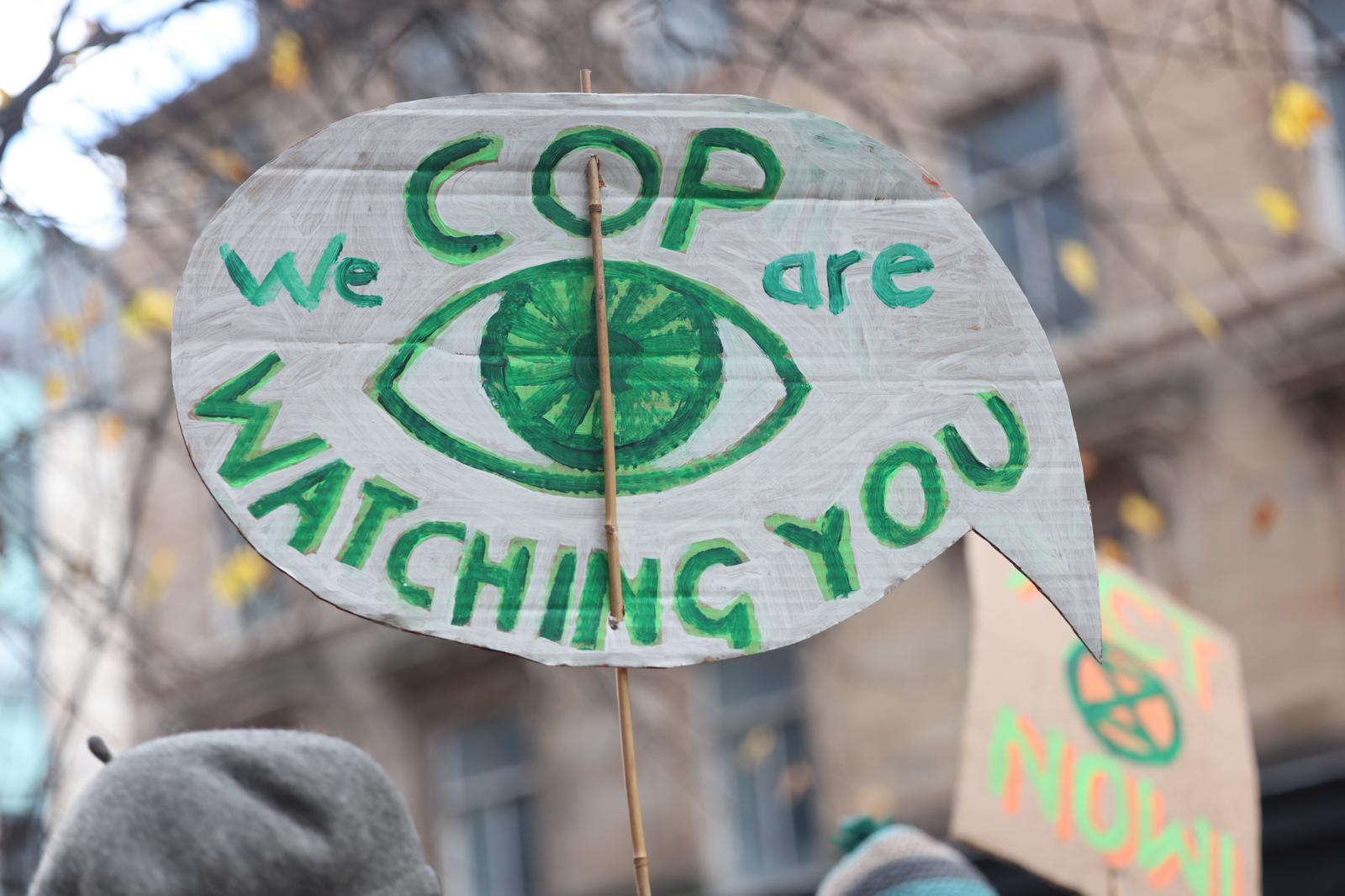
Gender equality is essential for true climate solutions
Yesterday at COP26 a key topic of discussion was gender and climate. Women are more susceptible to the effects of the climate crisis, more likely to die in disasters, and more likely to experience harassment as they flee. They are also less likely to be included in climate negotiations and solutions. We spoke to Rose Kobusinge, a Ugandan climate activist and Joy Egbe, co-founder of Newdigit Technologies, a Nigerian renewable energy start-up addressing energy poverty, on why it is essential to climate solutions that we achieve gender equality.
- How and why is the climate crisis affecting women and girls more severely?
Rose: In my community in Uganda, and many other communities worldwide, women bear the burden of family care. The increasing droughts and floods due to climate change put pressure on food systems and a lot of the burden falls on women and girls. In my community, many girls miss school days or drop out of school to support their parents to grow crops for home consumption and subsistence sale.
Because of these gender roles, climate change-related conflicts and displacements tend to affect women and children much more than men. For example, in western Uganda in Kasese district, floods tended to affect women and children more as they stay home more and have limited mobility.
Global debates have ignored gender-based violence related to extreme weather. Rape and sexual assault of women and girls are extremely high in displaced settings and camps. If only the women in such vulnerable situations were given opportunities, such problems would be brought to light and solutions developed by and with women informed by the lived experiences.
Joy: Women are the ones who go out to get water, farm and take care of the household, so the climate crisis impacts them the most. Many girls have to drop out of school to support their parents because of poverty caused by climate impacts. On top of this, many young girls are given out in marriage to older men because their families need the money to survive. Rape is now a conflict weapon of herdsmen in Nigeria, and women and young girls are the victims of this crisis.
- Why do we need gender equality to achieve a truly sustainable world?
Joy: To build a better and more sustainable world we need a gender balance because when women are empowered, they can help in building an economy which will in turn end poverty and the climate crisis. Investing in female education is the quickest way of ending world poverty and meeting the sustainable development goals.
Rose: Women and girls have been left out of the development agenda for a long time and I think it’s the reason this world is a mess at the moment. Unless we recognize women and girls are leaders, pathfinders and problem solvers, we will not find a true solution.
Take the example of the young women on the frontline calling for climate justice. We are more than determined to push for a sustainable and safe climate. All we need is support with the right platforms and opportunities. All that is needed is giving a voice to the voiceless, listening to them, and supporting them to act. That’s what I think as a young African woman!
- What do you think should be done to ensure that women around the world are given their rightful place in climate decision-making?
Joy: As women are more vulnerable to the impacts of environmental degradation, I would expect more women to be at the centre of the decision-making process. Women should be given more access to the negotiation rooms, and more platforms should be created to showcase female-led initiatives and technology for fighting climate change.
Rose: Many women, young and old, are on the frontline calling for climate justice and they must not only be listened to but also given platforms to devise solutions for us all. At the moment, tokenism is used instead of true involvement; one or two women are given seats at the table and then the leaders praise themselves on how they are involving women.
Even those few at the table are not given decision-making power or opportunities to make a difference. We need the right platforms, positions of power, finance, support, and safe spaces to share and create solutions. This is what will bring significant change to the current unequal systems. It’s hard for a woman or girl to thrive in the current systems where women must strive so much harder to prove what they are worth. Gender equality is not a fight against any gender but a fight for a fair, equitable and sustainable world in which everyone can thrive.
SIGN UP FOR OUR EMAILS AND STAY UP TO DATE WITH EJF

